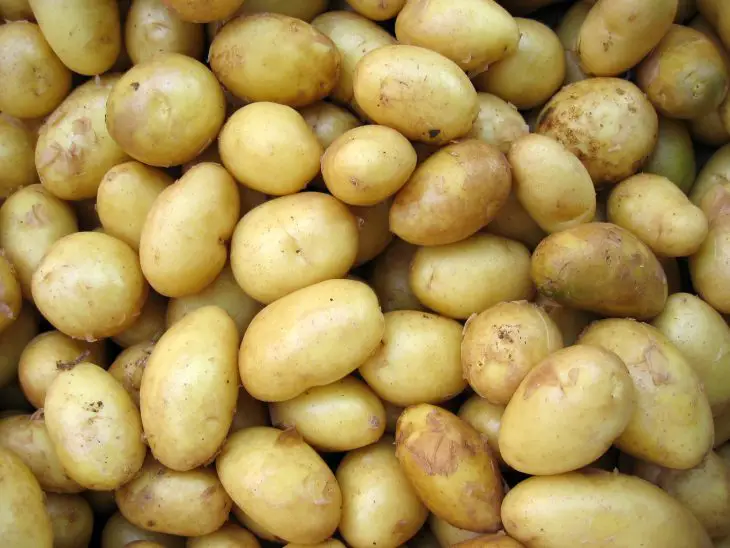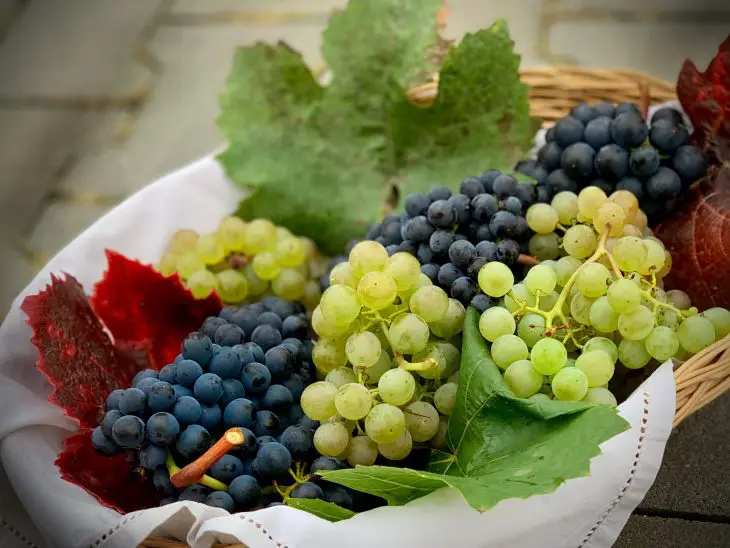Hey there! This site is reader-supported and we earn commissions if you purchase products from retailers after clicking on a link from our site.
It’s a common belief that vodka is made exclusively with fermented potatoes. However, whilst potatoes can and are still used today most vodka is made using a variety of different grains. Naturally, this fact makes people wonder, is there a difference between potato vodka vs grain vodka?
In theory, vodka can be derived from near enough anything. In the USA it is defined as an umbrella term for “neutral spirits without distinctive character, aroma, taste or colour”. The EU defines it slightly differently. However, the general idea is that any distinctive traits of its alcoholic source are intentionally diminished during the distillation process. Due to this, vodka is actually gluten-free since the gluten is removed as a result of this process.
As a result of this vague definition though, good quality vodka can be somewhat tricky to come across. This is because the global market is flooded with low-quality bottles derived from cheap sources.
Grain Vodkas
The term grain vodka is actually something of an umbrella term. Grain vodka can be derived from pretty much any kind of grain there is.

Variations of Grain Vodka
However, the most common varieties of grain vodka are corn vodka, wheat vodka and rye vodka.
Despite each of these vodka types being derived from grain, the various grain vodka types have their own distinctive taste.
Corn Vodka
Grain vodka brands derived from corn (or mostly from corn) include Tito’s and Stolichnaya. These vodkas are typically flavoured rather heavily. This is because in their base form they can have quite a harsh chemical like aftertaste. However, whilst the flavouring will often diminish this harshness, it is not likely to eliminate it entirely.
Good quality corn vodka can be slightly tricky to track down if you don’t know what you’re looking for. Many of the cheaper brands you’ll find in the liquor store will be some of the worst vodkas you can drink.
On the high end, however, vodka brands like Praire or Stolichnaya are excellent choices.
Rye Vodka
Rye based vodkas are some of my personal favourites, with the Polish Żubrówka – Bison Grass being my go-to choice. These types of vodka tend to be quite minerally, spicy or occasionally creamy in taste. This is accompanied by that distinct vodka burn in your throat, which I personally enjoy.
A difference between rye vodka and other types is that they wont give you that unpleasant gut rot feeling often associated with vodka. However, if you do get a particularly cheap rye vodka the burn in your throat will be incredibly uncomfortable.
Whilst personally I am a fan of Żubrówka, some excellent high-end rye vodka brands include Jewel of Russia and Potocki.
Wheat Vodka
Similarly to rye vodka, good quality wheat vodka such as Russian Standard is known for its smooth texture and pleasant burn. However, cheaper and lower quality brands will inevitably be accompanied by some gut rot.
Wheat vodka is very commonly lightly flavoured in interesting ways. Examples of such include flavourful notes of citrus fruit or berries. However, slightly more eclectic tastes such as a light metallic tang or chive flowers are not unheard of.
There are plenty of excellent options to choose from when it comes to wheat vodka. These range from something clear and smooth like Ketel One or Russian Standard to a flavoured option like Absolut.
Some French wheat vodkas such as Grey Goose are also excellent choices. However French vodka tends to be somewhat more expensive than an equivalent quality bottle from other nationalities.
Potato Vodka
Potato Vodka Brands such as Karlsson’s Gold or the Polish Luksusowa vodka are rather distinct from grain-based vodka. The difference lies in the taste, texture and aroma that potato vodkas have when compared to grain-based vodka.
Potato vodkas are known for their thick, oily or velvety textures, that provides an earthy and smooth finish. Additionally, the flavours and aromas of these drinks tend to be reminiscent of rustic fruit and vegetables. Notes of parsnips, potatoes, radishes or zesty grapefruit are particularly. Higher-end potato vodka variants are also known for their intense steamy and earthy flavour.

Some great choices for potato vodka include the aforementioned Karlsson’s Gold or Luksusowa. However, Woody Creek and Chopin vodka are excellent choices for drinking straight or in martini cocktails. Boyd Blair on the other hand is an excellent potato vodka accompaniment whilst eating food due to its sweeter notes.
Grape Vodka
Distilled spirits that are derived from grapes and have been through the fermentation process are technically not vodka but a grappa. However, grappa is a protected term. As such these liquors cannot be legally referred to as grappa if they originate from outside of Italy. For this reason, a grappa product made outside of Italy is marketed as and sold as vodka.
Many of the grape vodka varieties you’ll see such as Ciroc will be French in origin. A big reason for this is the geographical location being close to Italy. This allows the grape vodka to have a somewhat similar taste to that of traditional Italian grappa.

Unlike grain or potato vodka, grape vodka is comparably sweet and tangy. Its flavours are reminiscent of fruit juice, minerals or citrus sweets. High-end grape vodka such as Guillotine or Ultimat on the other hand is comparatively mild in taste. In fact many people being able to drink them as one would water.
Potato Vodka vs Grain Vodka
No matter how your choice of vodka is made it will be gluten-free. However, grape, grain and potato vodka will each provide subtle but distinct flavours, textures and aromas from one another.
Whether combining with tomato juice to create a Bloody Mary or drinking it straight; the question of it potato vodka is superior to the others is ultimately down to personal preference. Personally, I believe that whether vodka is derived from grains, grapes or potatoes, the quality bottle speaks for itself.
If however, you want to experiment to find out which version of vodka is best for you. Or just how many it will take to get you drunk, you can. The best option is to simply grab a bottle each type and taste them for yourself. Although if doing this, make sure you’re careful and pace yourself. Or else the morning after won’t be as fun as the night before.
